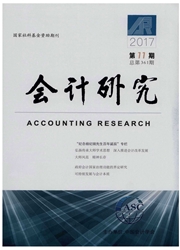

 中文摘要:
中文摘要:
利用2002--2010年分析师盈利预测的大样本数据,本文检验了分析师报告收入预测(在报告盈利预测的同时额外报告收入预测数据)的动机和经济后果。经验结果显示,高内在能力、有私有信息和隶属于大券商的分析师,更可能报告收入预测。子样本中,小券商中高能力的分析师,以及明星分析师中高能力或具有私有信息的分析师更可能报告收入预测。上述结果支持了信号传递假说和声誉假说。最后,我们发现,报告收入预测的分析师预测,其盈利预测的准确性更高,并且市场对其盈利修改的反应更大。
 英文摘要:
英文摘要:
Using a large sample of analyst earning forecast data from year 2002 to 2010, this paper examines the motivation and economic consequences of disaggregated earnings forecasts (report revenue forecast in addition to earning forecast). Empirical results show that analysts with high intrinsic ability, private information or working for big brokerage houses are more likely to report revenue forecast. Besides, among analysts working for smaller brokerages, those who have higher ability are more likely to distribute revenue forecasts; and among star analysts, those who have private information are more likely to report revenue forecast. These results are consistent with signaling argument and reputation argument. Finally, we find that disaggregated earnings forecasts are associated with more accurate earnings forecasts and stock market respond more significant to earnings forecast revisions supplemented with revenue than do stand-alone earnings forecast revisions.
 同期刊论文项目
同期刊论文项目
 同项目期刊论文
同项目期刊论文
 期刊信息
期刊信息
